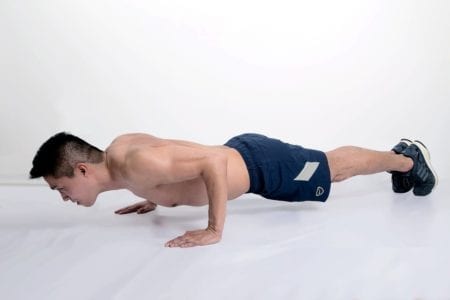 Many athletes, not just amateurs, are wondering what diet they should use in connection with increased physical activity. The right diet for an athlete is extremely important. If we compose it properly, our training will be effective and healthy, and that’s what it’s all about.
Many athletes, not just amateurs, are wondering what diet they should use in connection with increased physical activity. The right diet for an athlete is extremely important. If we compose it properly, our training will be effective and healthy, and that’s what it’s all about.
What to consider when creating an athlete’s diet?
We must remember that the diet of an athlete, whether amateur or professional, is significantly different from nutrition plans for those who are not very active. To create a healthy menu, factors such as gender, weight and age should be taken into account. The type of sport that is grown is equally important. Other is the demand of strength athletes, and other runners or people who like to play in team sports.
Diet for an athlete – the most important rules
The daily caloric content of meals should be higher than the normal diet by an average of 500 kcal. Athletes consume more energy and lose more weight during competition or training, hence appropriate compensation is necessary. Sports diets usually start at 2,500 kcal.
At the same time, you can not forget about irrigating the body. In the case of high-calorie diets, the amount of water or isotonic drink per day can be up to 3.5 liters. It is suggested that every liter of kcal should be one liter of liquid. The athlete must drink a minimum of 2 liters daily, because his body drains more byproducts of richer metabolism into the calories of the diet. In addition, drinking isotonics allows you to replenish the level of electrolytes more quickly. We make sure that the water is not carbonated and drinks too cold.
From the menu we eliminate all fats subjected to significant thermal processing (we do not fry), most sweets, white bread, onions and garlic, as well as bloating products, such as cabbage or peas. We are very careful about diet supplements and their use. A natural and correctly composed menu should provide all the necessary nutrients.
As with most diets, the one for an athlete should contain 4-5 meals, consumed at fixed times of the day.
What to eat as part of an athlete’s diet?
Depending on the type of sport, the main difference in the athlete’s diet is the share of carbohydrates in meals. This value varies from approx. 45% to over 60%. For people practicing amateur sports, the average value can be taken, that is around 50-55%. We get carbohydrates from vegetables and fruits, among which we can almost freely choose. We do not forget about fats, but of course those unsaturated. We find them in olive oil and organic butter. The diet also can not run out of fish, especially those lean, such as pollock, trout or sprats. The source of protein is milk and its products and eggs. A correctly created menu guarantees that you will not lack any vitamins or minerals that you need when improving your condition or building muscle.
Nutrition of athletes before the competition
Specialists in this area advise that before the workout – 4 to 2 hours – eat the last meal. Its main ingredient should be carbohydrates, whose source are products with a lower glycemic index. We omit various carbohydrate snacks (eg bars) at this point, because they give a quick boost of energy, instead of slowly releasing glucose into the muscles. The most important thing is not to eat right before training or competition, because it will be accompanied by a feeling of heaviness. What to eat and drink after the competition? Above all, you should not throw food at once and wait a minimum of half an hour, but no more than two hours. Then we can eat a meal with protein, which will speed up muscle regeneration, and with carbohydrates to replenish glycogen stores. The observance of these principles guarantees effective training or an appropriate dose of energy in the competition.
Picture Credit: Keifit
